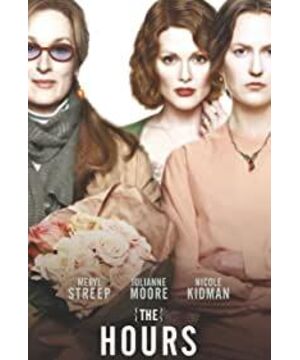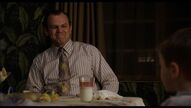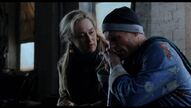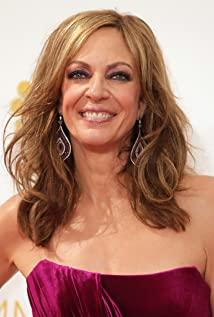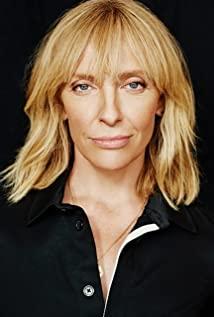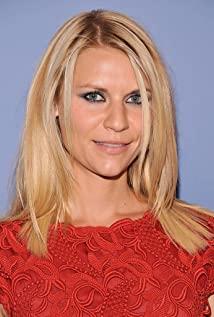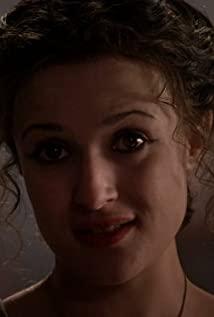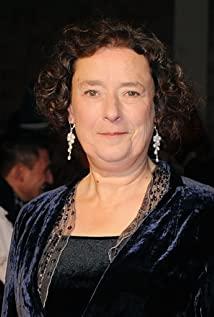The first time I saw the photo of Virginia Woolf, I was deeply attracted by this face. The portraits of Woolf I see are all her profile, this is a beautiful woman, very plain (like the word) kind of beauty. Woolf in profile has a sleek high nose and thin lips, a slender neck, rounded auricles and a soft bun. Every time I see her like this, I am always shocked, and then my brain is in a blank state, and I admire it sincerely!
Looking at the image of Woolf created by Nicole Kidman in "The Moment", in order to carve a sentence The way I look pensive, the way I wake up in the morning and comb my hair at will, the firm eyes that stubbornly hold my own opinions, and the way I am trapped in a trap set by myself and only myself in a group of people, I have been completely fascinated.
For those around, such a person is helpless and caring, so at that party, Woolf's sister said to Angelia, "Your aunt is a very lucky woman, Angelica... ...because she has two lives. She has her real life, and her life in the books, and that really makes her happy." Only the people who know and love best can give such an assessment, how apt.
The first book I read Woolf was "A Man's House". In this book Virginia develops a series of vague reflections on the topic of "women and novels". She believes that the most basic requirement for a woman to write is to have a house of her own and a fixed income of £500 a year. It is also because of these views that she has been dubbed a representative figure of feminists. And after I was deeply obsessed with this talented female writer, I thought that what more "women and novels" should have is what her sister said about having two lives. A kind of reality - like money and houses, so Woolf would say "suffrage and money she admits that money seems to be more important" (this sentence is full of dissatisfaction and irony with the world), this is the male power It is necessary for women in society to get what they have. The other is the life in the book, which is often a fantasy at times. Occasionally a self-talk will pull you to a distant place and let your thoughts fly.
Often able to indulge in their own imagination, unable to extricate themselves, such people are not different. It's just that she persevered with this imagery and was completely addicted to doing it. Anyone can have images. For example, on a crowded street, they suddenly realize that they don't belong to this world. When they look at everything around them, they think of another story that happened, and they realize that they are just a bystander. Everyone has some secret garden in their heart. It's just that Woolf insisted on her way of life. When the people around her imprisoned her as a patient, only herself firmly believed that she was right! Modern people must think of seeing no less than she would, but she can stick to her own views wholeheartedly and stick to her own opinions. And we often interrupt our temporary dreams because of the trivial things around us, or we simply don't have a house and a good life of 500 pounds to start in a hurry.
Have a room of your own, taught by Virginia Woolf. The so-called own room, in my understanding, is a safe place from prying eyes. The process of writing is like a blind ant climbing a wall. It is small, lonely, blind, and steep. Anyone standing behind me who is writing will stab me. That feeling is not annoyed, but ashamed, and the vest is cold for a while.
Writing is a private matter, and words are a kind of devotion. Women who focus on words can only consume a woman's youthful appearance in one stroke and one painting; have you seen Margaret Duras in Girls' Generation? That's a standard beauty. Then, the words devoured her into a short, ugly and famous old woman. And Woolf may give up even more for this.
Virginia Woolf's essay says, "Never pretend that what you don't have is not worth having...for example, never pretend that your child can be replaced by something else!"
This The sentence order is actually reversed. In my understanding, it should be "never pretend that the child can be replaced by something else, just as never pretend that what you don't get is not worth getting". Such a painful recollection of a female writer after missing the opportunity to be a mother can only be deeply felt by female readers.
Woolf once saw a cat appear in the courtyard when she was walking in Oxbridge (she created a virtual high school called "Oxbridge" in "A Room of My Own"), she said, this scene It can change one's worldview. Maybe it was a fish, maybe it was a thunderbolt, maybe it was a weird and terrifying laugh from someone somewhere... In short, a fundamental change in the world view took place at this moment. This kind of root is even an unaware root, just like the unchanging appearance of one's own appearance in the mirror every day, only a fixed photo can prove that the fact of aging has indeed happened. Perhaps a woman writer abandoned her child at a momentous moment she herself could not recall afterwards.
What is the reward for women writers who give up their children? Literary crystals?
Female writers who have given up their children should be passed down, this is what they deserve. However, it is an indisputable fact that female writers who have become mothers can also be passed down. God is not fair.
To put it more emotionally, those female writers who did not become mothers mostly missed it. It may be because the writing plan is too huge and the implementation is too smooth, and in the blink of an eye, 20 years have passed; it may also be because the writing plan is too huge but the implementation is not smooth, and I want to have an explanation for myself about literature, so I grit my teeth and work hard. , 20 years have passed; perhaps, these 20 years have happened to be in love with a man who does not want to be a father; perhaps, these 20 years have not been confident in mother's love, and when the instinctual mother's love needs a place, there is nowhere to rest.
It can only be speculated, because a motherless female writer is mostly silent about it. Have you heard Zhang Ailing, Beauvoir and others talk about their regret? Maybe, people don't think it's a pity, and there are other important regrets in life;
The fear is to read the words that Woolf regretted afterwards. We are afraid, and God is also afraid, because -- regret is too late.
It was such a woman who, after having the life in the book, began to regret the life in reality. So she tried to ask her husband to go for a walk and eat with her family, but it was easy to change and her nature was hard to change. She can only be Woolf, so in the end she can only choose to bring a few bags of rocks and sink to the bottom, leaving this real life that drives her crazy.
After all, a woman, two lives are enviable. But who can bear this kind of honor for a long time, no matter who, in the end, they can only choose a path that suits them best.
View more about The Hours reviews


